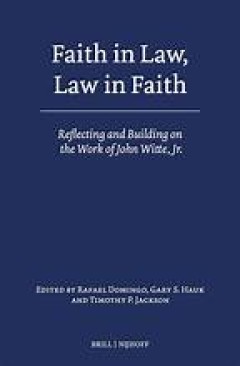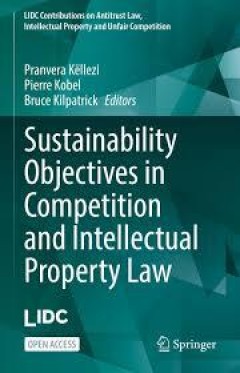Filter by

Proceedings of the 14th Arabic Conference of the Arab Union for Astronomy and…
Buku ini menyajikan artikel-arikel yang telah melalui proses tinjauan dari Konferensi Arab ke-14 tentang Astronomi dan Ilmu Antariksa (AUASS), yang diadakan dari 13 hingga 16 November 2023 di Universitas Sharjah, UEA. Ini mencakup kemajuan terbaru dalam berbagai bidang astronomi, astrofisika, ilmu antariksa, dan teknologi, termasuk alam semesta dan komponennya yang berupa objek langit, termasuk…
- Edition
- -
- ISBN/ISSN
- -
- Collation
- online resource ( XV, 288 Pages)
- Series Title
- Prosiding Springer dalam Fisika
- Call Number
- 520.06 NAI a

Orientierungsmuster und Beanspruchungserleben in der Pflege
Dalam buku Open Access ini, pola orientasi dan pengalaman beban kerja dari tenaga kesehatan profesional dalam konteks kegiatan profesional mereka dianalisis dari perspektif pendidikan kejuruan. Pertanyaan utama adalah bagaimana tenaga kesehatan profesional bersikap terhadap beban kerja yang mereka rasakan dalam medium habitus terkait profesi mereka dan bagaimana mereka mengatasinya. Melalui waw…
- Edition
- -
- ISBN/ISSN
- 978-3-658-47765-3
- Collation
- online resource ( XVII, 246 Pages)
- Series Title
- -
- Call Number
- 331.25

Noninvasive Therapeutic Technologies; Stimulation of Physiological Processes
Buku akses terbuka ini mengungkap kemajuan terobosan dalam teknologi terapeutik non-invasif, dengan fokus pada integrasi kembaran digital dan kecerdasan buatan untuk meningkatkan kesehatan sirkulasi. Di jantung buku ini adalah eksplorasi solusi inovatif yang menjanjikan untuk merevolusi praktik medis dan perawatan pasien. Bab-babnya menyelami topik-topik kritis seperti aktivasi aliran darah ult…
- Edition
- -
- ISBN/ISSN
- 978-3-031-79025-6
- Collation
- online resource ( IX, 219 Pages)
- Series Title
- Kuliah Sintesis di bidang Teknik Biomedis
- Call Number
- 615.8 OST n

UK Child Migration to Australia, 1945-1970
This open access book offers an unprecedented analysis of child welfare schemes, situating them in the wider context of post-war policy debates about the care of children. Between 1945 and 1970, an estimated 3,500 children were sent from Britain to Australia, unaccompanied by their parents, through child migration schemes funded by the Australian and British Governments and delivered by churche…
- Edition
- 1
- ISBN/ISSN
- 978-3-030-69728-0
- Collation
- oer.unej.ac.id
- Series Title
- Palgrave Studies in the History of Childhood
- Call Number
- -

New Progress of Regulations and Judicial Practice of Intellectual Property
Buku akses terbuka ini mengumpulkan dua jenis kasus di dalam dan luar negeri. Salah satunya adalah kasus-kasus berpengaruh terbaru di bidang hak kekayaan intelektual dalam tiga tahun terakhir, dan yang lainnya adalah kasus-kasus hak kekayaan intelektual klasik di dunia. Jenis-jenis kasus tersebut melibatkan kasus-kasus tipikal di bidang paten, merek dagang, hak cipta, persaingan tidak sehat, da…
- Edition
- -
- ISBN/ISSN
- 978-981-97-6095-4
- Collation
- online resource ( XII, 592 Pages)
- Series Title
- -
- Call Number
- 346.0486 CHE n

Faith in Law, Law in Faith
Across four decades, John Witte, Jr. has advanced the study of law and religion by retrieving religious sources of law, renewing timeless teachings of religion for today, and reengaging with the difficult issues confronting society. Interdisciplinary, international, and interfaith in scope, Witte’s work has generated an enormous body of scholarship. This collection of essays by leading schola…
- Edition
- -
- ISBN/ISSN
- 978-90-04-54618-9
- Collation
- oer.unej.ac.id
- Series Title
- -
- Call Number
- -

Ergativity and Other Alignment Types in Neo-Aramaic Investigating Morphosynt…
The alignment splits in the Neo-Aramaic languages display a considerable degree of diversity, especially in terms of agreement. While earlier studies have generally oversimplified the actual state of affairs, Paul M. Noorlander offers a meticulous and clear account of nearly all microvariation documented so far, addressing all relevant morphosyntactic phenomena. By means of fully glossed and tr…
- Edition
- -
- ISBN/ISSN
- 978-90-04-44818-6
- Collation
- oer.unej.ac.id
- Series Title
- Studies in Semitic Languages and Linguistics, Volume: 103
- Call Number
- -

Endangered Compound Prosody in Kansai Japanese
This book examines the diverse prosody of compound nouns in Kansai Japanese, with a special focus on a class of compounds with particularly variable prosody, whose unique prosody is potentially endangered due to their structure and influence from Tokyo Japanese. These compounds serve as important evidence for recursion in prosodic structure in theories of the syntax-prosody interface, as they s…
- Edition
- -
- ISBN/ISSN
- 978-90-04-67764-7
- Collation
- oer.unej.ac.id
- Series Title
- Endangered and Lesser-Studied Languages and Dialects, Volume: 2
- Call Number
- -

Vision, Narrative, and Wisdom in the Aramaic Texts from Qumran = Essays from …
The Aramaic Dead Sea Scrolls from Qumran have attracted increasing interest in recent years. These texts predate the “sectarian” Dead Sea scrolls, and they are contemporary with the youngest parts of the Hebrew Bible. They offer a unique glimpse into the situation before the biblical canons were closed. Their highly creative Jewish authors reshaped and rewrote biblical traditions to cope wi…
- Edition
- -
- ISBN/ISSN
- 9789004413733
- Collation
- 296 hlm; ill., lamp.,
- Series Title
- Studies on the Texts of the Desert of Judah, Volume: 131
- Call Number
- -

Sustainability Objectives in Competition and Intellectual Property Law
While recent years have been dominated by Covid-19 and now the war in Ukraine, we are witnessing numerous ongoing tragedies. The last few decades have seen a dramatic increase in freak weather events caused by climate change.
- Edition
- -
- ISBN/ISSN
- 9783031448690
- Collation
- XIX, 415
- Series Title
- -
- Call Number
- -
 Computer Science, Information & General Works
Computer Science, Information & General Works  Philosophy & Psychology
Philosophy & Psychology  Religion
Religion  Social Sciences
Social Sciences  Language
Language  Pure Science
Pure Science  Applied Sciences
Applied Sciences  Art & Recreation
Art & Recreation  Literature
Literature  History & Geography
History & Geography